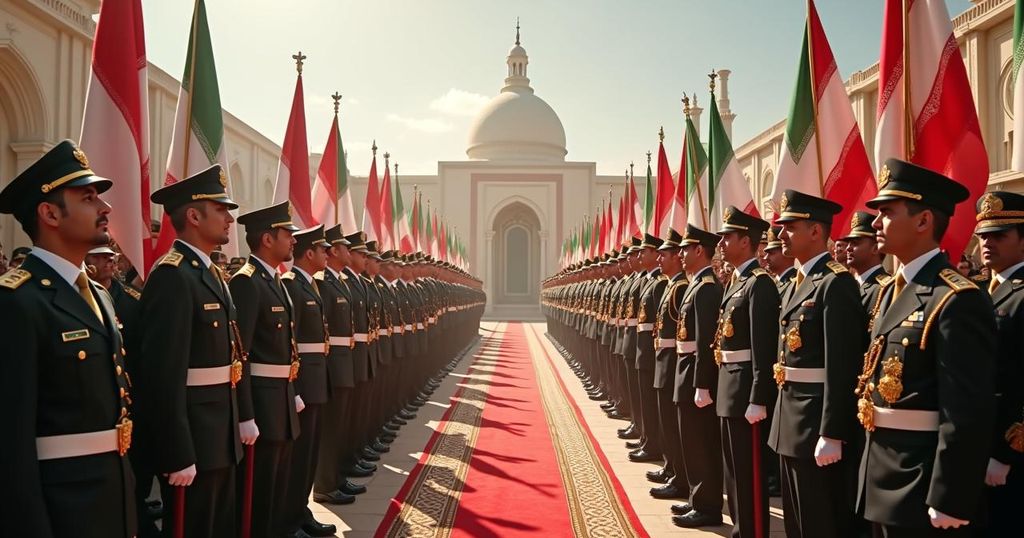Iran and Iraq to Conduct Funerals for General Killed in Israeli Airstrike

Iran and Iraq will hold funerals for General Abbas Nilforushan, killed in an Israeli airstrike alongside Hezbollah leader Hassan Nasrallah. Ceremonies will occur in Iraq and Iran, with significant military and political repercussions expected from recent escalations between Iran and Israel.
Iran and Iraq are set to conduct simultaneous funerals for General Abbas Nilforushan, a high-ranking official of the Islamic Revolutionary Guard Corps (IRGC), who was killed in an Israeli airstrike on September 27, along with Hezbollah leader Hassan Nasrallah. According to the IRGC’s news agency, Nilforushan’s body has been recovered following the attack on the southern suburbs of Beirut, a known stronghold of Hezbollah. The funeral ceremonies are scheduled to take place in Iraq’s revered cities, Najaf and Karbala, on Monday, preceding the transfer of his remains to Mashhad, a holy city in Iran. Subsequently, a memorial service will be held in Tehran’s Imam Hossein Square on Tuesday, culminating with his burial in Isfahan, his birthplace, on Thursday. Iran’s actions follow a significant retaliatory missile strike against Israel, where approximately 200 missiles were launched as a response following the deaths of Nasrallah, Nilforushan, and Hamas leader Ismail Haniyeh.
The Islamic Revolutionary Guard Corps (IRGC) is an elite military force responsible for foreign operations, particularly through its Quds Force unit. The killing of General Abbas Nilforushan and Hassan Nasrallah has intensified geopolitical tensions in the region. The airstrike attributed to Israel has escalated hostilities, resulting in Iran’s missile retaliation against Israel. The broader context includes a series of confrontations involving Iranian officials and allied militant groups, such as Hezbollah and Hamas, against Israel.
In summary, the dual funerals in Iran and Iraq reflect the gravity of the loss of General Abbas Nilforushan, a strategic figure in Iran’s military operations. The IRGC’s statements and subsequent missile strikes demonstrate Iran’s commitment to retaliatory action and highlight ongoing regional tensions. The situation poses significant implications for Middle Eastern stability and security dynamics, as both Iran and Israel prepare for potential further conflict.
Original Source: www.voanews.com








